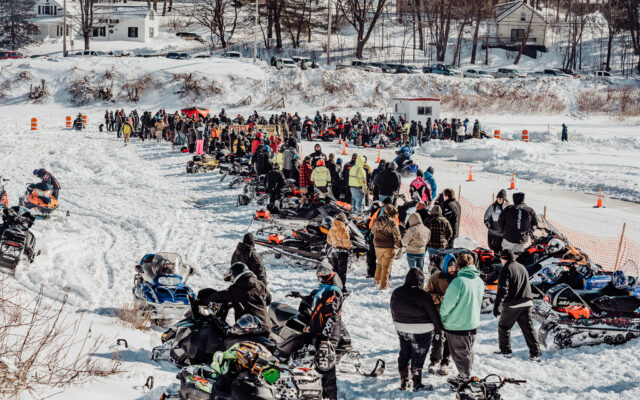
Canceled winter events are another climate change warning
By BDN Editorial Board
Climate change is often associated with having too much of unwanted things. Too much rain. Tides and temperatures that are too high. Too many damaging storms. More invasive species and disease-carrying insects.
But, as we’ve seen in recent weeks, climate change can also mean too little of something. In this case, snow and cold temperatures.
Numerous outdoor events — most notably Aroostook County’s Can-Am dog sled races — have been canceled this winter because of changing and unpredictable weather conditions.
Unprecedented warming globally is primarily being driven by climate change, scientists have said, although it is currently exacerbated by El Nino, a natural pattern when warmer winds dip south, pushing warm water in the Pacific Ocean toward the West Coast of the U.S. and Canada, which can lead to higher temperatures worldwide.
The Can-Am, a set of three races scheduled for this weekend, was called off because of a lack of snow, warm temperatures and a forecast that called for rain. The snow depth in the area was about half what it typically is at this time of year. It was the first time in its 31-year history that the races had been canceled before they started.
“It’s obvious that we have a changing weather pattern that has happened because of climate change,†Can-Am media adviser Andrew Birden told Bangor Daily News reporter Chris Bouchard. “And we are definitely seeing it here.â€
Still, planning for next year’s Can-Am is already under way.
The annual race weekend is the busiest time of the year for many local businesses, many of which will likely be hurt by this year’s cancellation.
It also looks like the snowmobile season in Aroostook County could be cut short this winter. Like with the sled dog races, lower than normal snowfall, rain and warm temperatures have made conditions unpredictable. It has also made grooming trails more difficult.
“I’ve been doing this for 30 years, and I’ve never seen a winter like this,†Gary Marquis, Caribou Parks & Recreation superintendent, told reporter Melissa Lizotte in a Feb. 27 BDN story. “Unless something changes in the next 10 days, we could see the end of the snowmobile season.â€
A charitable snowmobile run in Piscataquis County, scheduled for March 2, was also canceled.
Snowmobiling contributes more than $600 million a year to Maine’s economy, according to a 2020 University of Maine study.
As BDN outdoor editor Julie Harris noted in a recent story, Maine’s changing winters are making it harder for both residents and tourists to enjoy outdoor activities, such as snowmobiling, ice fishing and skiing.
“It’s not your imagination. It’s getting more difficult to find enough winter in Maine for traditional activities like snowmobiling and ice fishing,†Harris wrote on Feb. 26.
“Longtime ice fishermen, snowmobilers, skiers, skaters and others who rely on winters to be cold and snowy are feeling the strain of a warming Maine,†she added.
Visitors from other states are coming to Maine earlier in the winter or relocating to different parts of the state, hoping for wintry conditions. Some are canceling their visits altogether.
This is a big concern for Maine’s outdoor recreation industry, which contributes $3.3 billion to the state’s economy annually.
Outdoor recreation accounts for 4.2 percent of Maine’s economy, more than double the national average, according to the Maine Department of Economic & Community Development.
At a recent webinar, scientists and outdoor industry representatives shared ideas on what a changing climate could mean for Maine and its long tradition of outdoor activities. Reducing the industry’s greenhouse gas emissions — by using electric equipment, for example — was a significant topic. Encouraging non-motorized activities, such as mountain biking and trail running, was another important topic.
Maine’s changing winter is another example of the impacts of climate change and a reminder that we have to take action now to preserve the outdoor activities that draw Mainers outdoors and draw visitors to Maine.